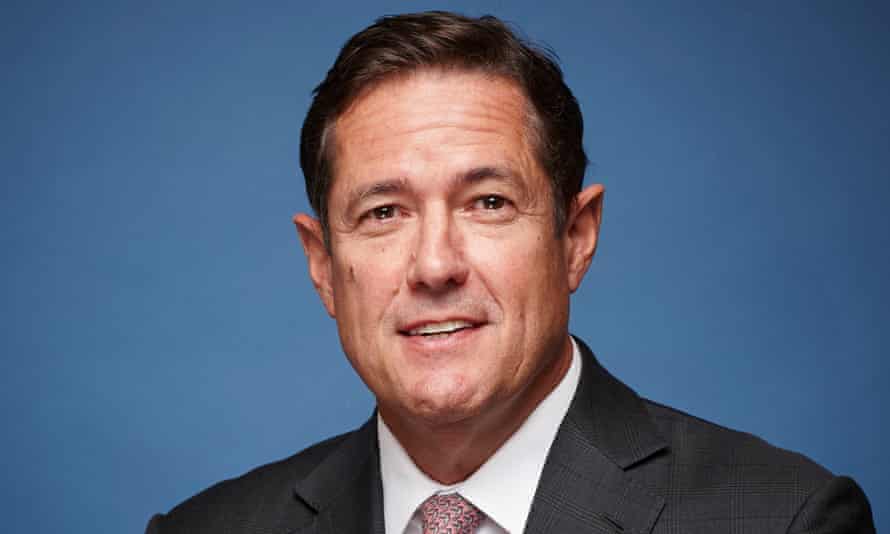Jes Staley says bank continues to take ‘cautious view’ of impact of Covid-19 pandemic

The UK economy is on course for its biggest economic boom since 1948 as the country’s coronavirus vaccination programme allows consumers to go out and spend, according to the chief executive of Barclays.
Jes Staley predicted the strongest year for economic growth since the aftermath of the second world war, at 6.5% this year, as “tremendous pent-up demand” built up during the pandemic is released.
“So we see – just like you’re starting to see in the US as well – quite a robust economic recovery in 2021,” Staley said. “We think that will carry through into 2022.”
He added that Europe “may have a little bit of a tougher time” in comparison because of its slower vaccine rollout. “The UK has done so well around the vaccination process, basically 50% of the population is now vaccinated. I think that’s going to allow the economy to open up sooner than what you might see in other countries.”
He made the upbeat assessment of the outlook for the UK economy as Barclays published its first-quarter results, which showed profits at the bank more than doubled over the period to £2.4bn.
While the bank recorded a drop in consumer spending at the start of the year, Staley said the trend was already reversing, helped by the “extraordinary success” of the UK’s vaccination programme.
He said spending was already up 70% during the first two weeks of April, compared with a year earlier.
The upbeat forecast meant the lender was able to put aside a smaller sum to cover customer defaults linked to the pandemic. It logged a £55m charge to cover bad debts, a fraction of the £2.1bn set aside during the same period last year.
It meant Barclays, which put aside a total £4.8bn to cover potential customer defaults in 2020, easily beat analyst estimates for a £503m charge in the first quarter.
It helped the lender to a 162% jump in profits to £2.4bn, up from £913m a year earlier, having also been buoyed up by strong mortgage demand and a jump in profits from its investment banking arm, as trading and deal-making helped support earnings.
The bank easily beat average City forecasts for profits of £1.8bn.
However, illustrating the uneven recovery from the pandemic, Staley confirmed the bank had temporarily shifted some of its Indian operations back to the UK as the south Asian country struggled with a devastating increase in Covid-19 cases.
The chief executive said the outbreak, which has overwhelmed hospitals and crematoriums, had put pressure on its approximate 20,000 local staff, some of whom had to take time off work to take care of family and loved ones.
“We are very focused on India right now. That’s our second employee location,” he said, adding that the bank had donated £1m to charities distributing medical supplies across the country in last week alone. “We all want to be focused on trying to help India come out of this pandemic”.
UK workers have picked up back-office work and call centre shifts that in some cases meant working overtime. “We have a huge amount of capacity and they’re sympathetic to what’s going on,” the chief executive added.
Despite the upbeat view on the UK economy, the banking boss said Barclays was still taking a “cautious view” of the impact of the pandemic, especially as government support measures are wound down.
While Barclays’ took a smaller charge to deal with bad debts in the first quarter, it contrasts with moves by UK competitors, including NatWest, Lloyds and HSBC, which released hundreds of billions of pounds from their bad debt reserves in light of their own upbeat economic forecasts.
Barclays expects the full-year bad debt charge would be “materially below” 2020 levels.
Barclays was the worst-performing stock on the FTSE 100 on Friday afternoon, falling 6% to 177p a share.
https://www.theguardian.com/business/2021/apr/30/uk-heading-for-biggest-economic-boom-since-1948-barclays-chief